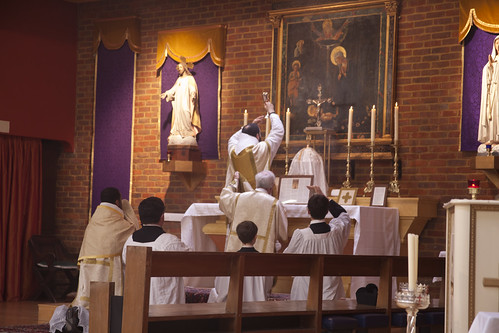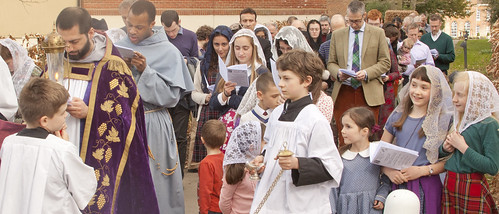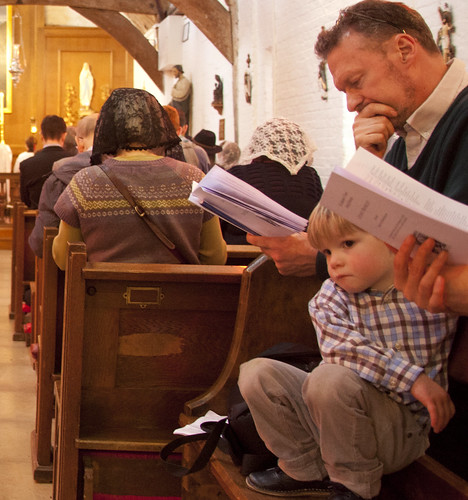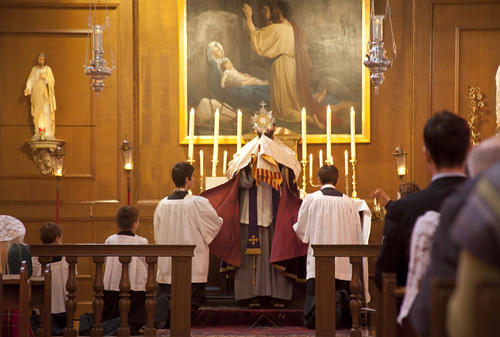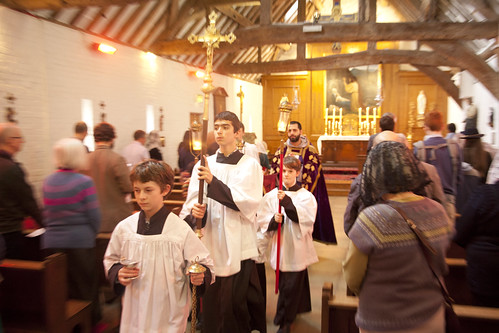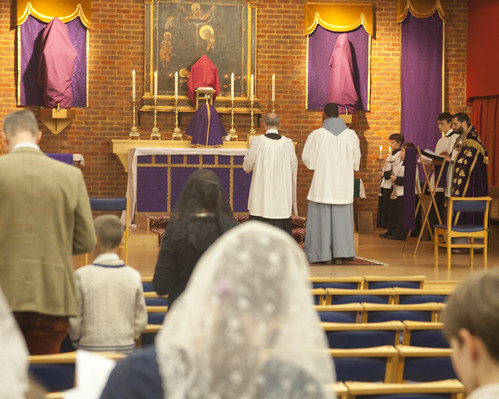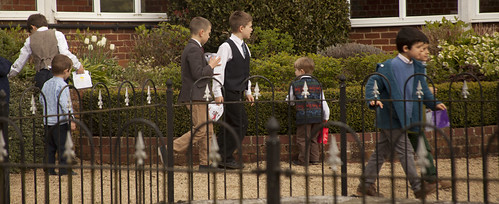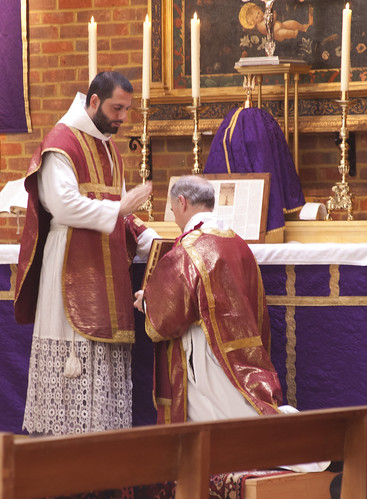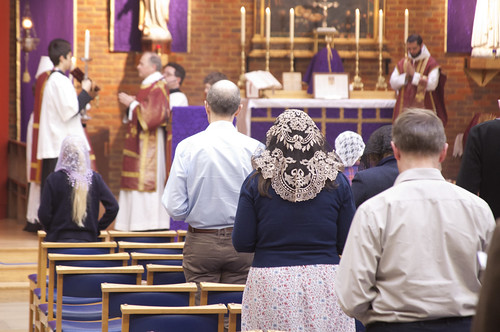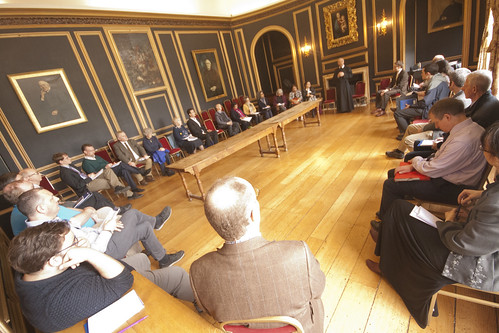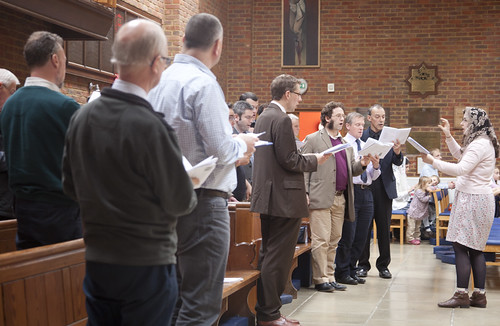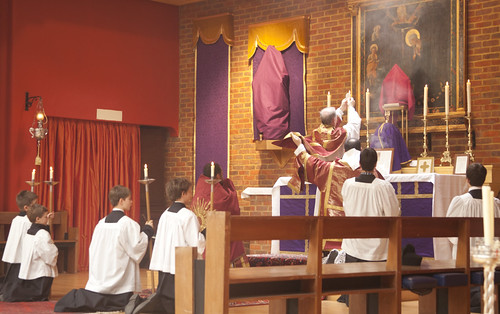Chairman's Blog
Why home school your children? Matt Walsh
I criticised a post of Matt Walsh's the other day, on the subject of getting men to 'man up', so it is only fair I note this post of his on home schooling which is excellent.
Read it here.
Here are just a couple of his points. He's writing about the USA. How much better is the UK?
Third, yes, my kids will eventually be exposed to all kinds of strange and terrible things. As much as I’d like to keep them shielded from the evils of the world forever, I know that I can do no such thing. The question is not whether our kids will be exposed to this or that depravity, but when and how and in what context? Are you prepared to trust the school’s judgment on when Junior is ready to learn about concepts like “transgenderism”? Do you trust their judgment on how he learns about it, and what he’s told about it? If you do, I suppose you aren’t even reading this post right now because you’ve been in a vegetative state for the past 30 years.
Fourth, when a kid is sent to public school, he’s expected to navigate and survive and thrive in a hostile, confusing, amoral environment, basically untethered from his parents, 6–8 hours a day, 5 days a week, 9 months a year, for 12 years. Is a child ready for that challenge by the time he’s 5 years old? Is he ready at 8? At 10? No. Our job as parents is to “train them up in the way they should go,” equip them with the armor of God, fortify them in the truth, and then release them into the world. That process has not been completed in conjunction with them first learning how to tie their shoes. I mean, for goodness’ sake, most adults can’t even manage to withstand the hostilities and pressures of our fallen world for that amount of time. And we expect little kids to do it? That’s not fair to them. It’s too much to ask. Way too much. They aren’t equipped, they aren’t ready, they aren’t strong enough, and they will get eaten alive.
Support the work of the LMS by becoming an 'Anniversary Supporter'.
Family Retreat: Photo essay
The St Catherine's Trust Family Retreat took place last weekend, in the Oratory School. It was our ninth Family Retreat, and a wonderful event as always.
One of the highlights was Stations of the Cross outside, which concluded with Benediction in the 'old' chapel.
We had Vespers on the Saturday and Compline each evening.
On Sunday the younger children had an Easter Egg hunt.
Alongside the Retreat Fr Guy Nichols and Chris Hodkinson led a Chant Training weekend for the Gregorian Chant Network.
Two of the participants were able to have a go conducting the schola in the final Mass of the weekend.
src="https://c1.staticflickr.com/4/3855/33428782400_c5a9928b9a.jpg" width="500" height="374" alt="IMG_9907">
Support the work of the LMS by becoming an 'Anniversary Supporter'.
Catholic University of Leuvain: Abortion 'a fundamental right'
In response to a junior philosophy lecturer distributing a document to students making the argument for calling abortion 'murder', a spokewoman for the 'Catholic University of Louvain' (or Leuvan) in Belgium has made it clear that this is 'contrary to the values' of the institution.
Tania van Hemelryck, the special adviser to the university president on gender politics, spoke to Belgian television on behalf of the university, saying: “The authorities want to find out the exact status of the text and how it was used during this course, bearing in mind that in any case UCL defends the fundamental right to abortion, and particularly women’s right to choose.”...
The official statement published by UCL on its website says much the same thing:
“Whatever the outcome of the inquiry, the right to abortion is enshrined in Belgian law and the note that was brought to the attention of UCL is at odds with the values upheld by the university. Conveying standpoints that contradict these values in the framework of a teaching course is unacceptable.”
Support the work of the LMS by becoming an 'Anniversary Supporter'.
Albertus Magnus Summer Programme in Norcia
In light of the earthquake this seems particularly deserving of support this year: the annual Summer Programme of the Albertus Magnus Centre, associated with the monks of the Norcia community. It is a 12-day programme of study on Aquinas, this year on his sacramental theology.
Support the work of the LMS by becoming an 'Anniversary Supporter'.
Sex education, sexual exploitation
 Not long ago I posted on this blog about how sex education which focuses on consent and ignores all other aspects of sexual morality opens children up to abuse. Here is some concrete evidence, via the excellent Family Education Trust. This focuses on the corrosive nature of the sex ed ideology not only on the children, but on those charged with their care.
Not long ago I posted on this blog about how sex education which focuses on consent and ignores all other aspects of sexual morality opens children up to abuse. Here is some concrete evidence, via the excellent Family Education Trust. This focuses on the corrosive nature of the sex ed ideology not only on the children, but on those charged with their care.
A serious case review published by the Bristol Safeguarding Children Board last year notes ‘an underlying confusion for practitioners in distinguishing between underage but consensual sexual activity between peers and child sexual abuse and sexual exploitation’. But that confusion does not exist in a vacuum. It is rather ‘rooted in the complex and contradictory cultural, legal and moral norms around sexuality, and in particular teenage sexual experimentation’. Put simply, a major part of the problem lies in the moral confusion that has resulted from an abandonment of moral absolutes.
The same theme features in the 2015 serious case review into child sexual exploitation in Oxfordshire. Having made the observation that there were times when ‘confidentiality was put before protection’, the report suggests that for at least some professionals this related to ‘a reluctance to take a moral stance on right and wrong, and seeing being non-judgmental as the overriding principle’. The Oxfordshire report further states that: ‘[T]here was…an acceptance of a degree of underage sexual activity that reflects a wider societal reluctance to consider something “wrong”,’ and argues that ‘action to prevent harm’ should always take precedence over ‘action to be non-judgmental’.
In a most telling comment, the report notes that ‘the reluctance in many places, both political and professional, to have any firm statements about something being “wrong”’ is among the factors that create ‘an environment where it is easier for vulnerable young people/children to be exploited. It also makes it harder for professionals to have the confidence and bravery to be more proactive on prevention and intervention.’
In the light of these observations from the serious case reviews, we should be wary of any approach to sex and relationships education that is reluctant to declare anything ‘wrong’. Children, young people and professionals alike all need a clear moral compass in order to safely negotiate the confused and confusing landscape that lies before them
.Support the work of the LMS by becoming an 'Anniversary Supporter'.
Silverstream Priory on RTE
A sympathetic introduction to the traditional Benedictines at Silverstream in Ireland.
Support the work of the LMS by becoming an 'Anniversary Supporter'.
The Challenge of Islam: Part 1 - the end of secularisation
I was reminded of this post from July 2014 by a story in The Tablet about retired Major-General Tim Cross, an Anglican, who was in despair about the attitude at the Foreign Office that religion really couldn't be the real explanation of anything important in, say, Iraq. The message is sinking in, but very slowly.
The other posts in the short series this post introduced are:
2. Religious Liberty
3. Caught in the Critique of the Decadent West
---------------------------------
I've been reading up a little on the sociology of religion, and the latest stuff is no longer about the Secularisation Thesis: the inevitable secularisation of society. This was to do with the ideas of the Enlightenment, wider education, and prosperity, eroding religious belief, as expressed in that stupid poem by the over-rated Matthew Arnold, published in 1867.
The Sea of Faith
Woodhead explains how sociologists' faith in the secularisation hypothesis was shaken first by the Salman Rushdie affair. Rushdie's book The Satanic Verses was condemned by the Ayatollah Khomeini, who issued a 'fatwa' (ruling) against Rushdie, ordering that he be killed. This was in 1989. It made the sociologists realise that religion, or at least Islam, was actually stronger, in its ability to shape events, even in the West, than it had been before: it wasn't fading away in obedience to the Secularisation Thesis. And then, 22 years later, there was 9/11
If Western sociologists had been paying attention, they would have noticed the revival of Islamic practice and zeal with started in Egypt in the 1970s, and was continued by the Islamic Revolution in Iran in 1979, and has continued some more in the overthrow of a whole heap of secular-minded regimes across the Arab world in recent years. To give them due credit, however, sociologists like Woodhead have been more on the ball than Western politicians, who appear to have clung to the Secularisation Thesis right up to the last few months. I suspect many of have not abandoned it yet. The idea that all the Middle East needs is prosperity and education, and religious zealotry will dissipate, is still rattling around in the corridors of power. Do these people read the newspapers? Syria was a prosperous nation with a big, educated middle class. They've got money coming out of their ears in the Gulf. There are universities of international standard in Egypt. And guess what? It was as those universities that the Islamic revival began. It was there, not in the slums, where young women started to wear head scarves.
In truth, the Secularisation Thesis was kept on its shakey legs after the War not by the inevitable effects of education and prosperity, but by the Cold War. It was the resources poured into Communist and anti-Communist factions, by East and West, which made the world outside North America and Western Europe look as if it was focused on secular issues. Once that was out of the way, an awful lot of people have turned to traditional religious themes to assert their identity and culture and distinguish themselves from their colonial past. We are now living in a period in which radicalised Hindus are persecuting Muslims in India, radicalised Buddhists are persecuting Muslims in Burma and Sri Lanka, radicalised Sunni Muslims are persecuting Shia Muslims in Iraq, and Christians are being persecuted by pretty well everyone. It's not a pretty sight, but it's not secularisation.
Is victory for the homosexual lobby and 'reproductive rights' feminists at the United Nations around the corner? You've got to be joking. I follow the excellent Friday Fax, which covers the infinitely depressing machinations of the World Government in Waiting. The progressive lobby's breakthrough is always round the corner. They've got the western nations in their pockets, they have the procedures taped, they like to see aid money being used to buy votes. But things are not going their way. A horrible realisation should begin to dawn on them some time soon. We have a world-wide revival of traditional values on our hands.
To repeat, this has actually been going on at least since the early 1970s. And it is not just Islam. Even Christianity is benefitting: the Catholics of southern India and West Africa, pressure from Hindus and Muslims notwithstanding, have had a very good few decades, and the very visible presence of their priests in the West has more to do with the massive numbers of vocations they have than persecution. In China, too, Christianity is on the march, as the most vigorous alternative to Communism.
There is nothing inevitable about secularisation. The sociologists have now accepted this, and the politicians, eventually, will follow them. This reality will solve some problems, such as the prospect of a right to abortion being established in international law by some international mega-treaty, but obviously creates others. The punch-line of this blog post is simply this: in addressing the problems, which are very real and very pressing, let's not try to pretend that the Secularisation Thesis is true after all. And part of that pretence is the guff about Religious Freedom.
I've argued more than once that appeals to Religious Freedom, to defend the Church against militant secularists in the West, is a complete waste of time. It is even more of a waste of time when directed against non-Christian religious zealots. This is so blindingly obvious that it shouldn't need saying, but I am saying it because I can see the temptation to make this appeal in a recent speech by Lord (David) Alton. I'll address this in the next post.
Support the work of the LMS by becoming an 'Anniversary Supporter'.
2017 Launching a new Confraternity in Scotland: May 13
The event will take place in Bannockburn, Stirling, and the proposed format is as follows:
From 10am (TBC): Holy Hour concluding with Benediction of the Blessed Sacrament;
11am: Procession from Holy Spirit Church to Our Lady & St Ninian's Church with traditional devotions;
12 noon: Sung Mass;
2pm: Inaugural Meeting to formally establish the Archconfraternity.
13 May will be the 100th anniversary of Our Lady's 1st Apparition at Fatima so we will also incorporate the devotions necessary to obtain the plenary indulgence associated with the centenary.
Support the work of the LMS by becoming an 'Anniversary Supporter'.
The Government bans independent midwives: in the Catholic Herald
I've been trying (with some success) to get Catholic and pro-life news outlets to take an interest in the shocking story of the banning of 'independent' midwives in the UK: that is, midwives who are employed by individual women to assist them in giving birth, rather than the NHS or a private hospital or 'birth centre'. Independent midwives had a fantastic safety record, but the Government regulator, the Nursing and Midwifery Council, has told them their insurance is 'inadequate': just not what 'adequate' actually means.
Why is this a Catholic story? Because the culture of the NHS is far from pro-life, and independent midwives offer a client-focused alternative. In the NHS women routinely face pressure to have abortions, pressure to limit family size after Caesarian sections (which is related to pressure not to have a natural birth after a section), pressure to limit family size for any and no reason, pressure to stop having children after a certain arbitrary age (you can be 'high risk' at 35), and a patronising and totally out of place pep-talk on contraception, which is apparantly a legal obligation following childbirth. Independent midwives are not as a group committed to any special pro-life principles, but they have the freedom to care about their clients and genuinely respect their choices and values. If you are having a tough time with the NHS on any of these issues, they are a safe harbour. But no longer.
If you want to protest, see the website 'Save Our Midwives' for suggestions. The story has also appeared in Church Militant.
From the Catholic Herald.
In preparing for the birth of our first child, we considered all the available options. Our research was not reassuring. Expectant mothers could talk to midwives, but it may not be the one who would assist at the birth. There was a birthing pool, but it might not be available when the moment came. Yes you can give birth at home, if a midwife was free. When it comes down to it, the mother’s preferences and plans for birth might, or might not, have some application when labour starts
Our friends’ experiences of the NHS didn’t reassure us either, and it seems they were not untypical. A recent study reported women feeling unsafe and frightened while in NHS facilities, describing their experience as being treated “like cattle” or being “on a conveyor belt”.
See the rest there.
Support the work of the LMS by becoming an 'Anniversary Supporter'.
Shaming men into virtue: a text-book case from Matt Walsh
Matt Walsh writes:
How can we expect our children to be righteous, to be generous and disciplined and faithful and godly, if their own father has not provided a demonstration of those traits? How can we demand virtue in others that we can hardly locate within ourselves? How can a real man rely on his wife to carry this burden alone or primarily? We, as men, are called to be the spiritual light to our family. When we engage in weak, shameful, selfish and childish behaviour, we dim the light. After a while, the light goes out altogether and our family is left to stumble around in the darkness. This is one of the many reasons why we need to reject porn and other vices, all which serve to lessen us, emasculate us and extinguish the light.
Well it is true, of course, but is this really the best way to inspire men to take up their role, as Walsh puts it, of 'leadership'? And what kind of 'leadership' does this, in fact, suggest? So far, it is just one of example. An example of suffering. Sounds a bit like a doormat, doesn't it?
Fathers and husbands should be sources of wisdom. But wisdom is the final product. The ingredients are knowledge, experience, and faith. Many of us have almost completely neglected two of those components and are just hoping that one day wisdom will miraculously sprout out of our heads like a magical beanstalk. I don’t think it works that way.
'Many of us' is an interesting phrase. The reader is invited to identify himself in it, but it is also a generalisation about men in general. Men combine ignorance with arrogance. Hang on a mo! Are these the people Walsh thinks have a divine mandate to the role of leadership in their families? Does that make sense?
CS Lewis says that Heaven is an acquired taste. I think something similar could be said of fatherhood and family life. The average 18-year-old, especially in today’s culture, has no taste for it because he simply cannot conceive of what it means to find actual joy in serving and leading others. He seeks only superficial pleasure and cannot comprehend any other kind. This is how most of us live until we have families.
At one level this is demeaning to the minority of men who do not live hedonistically and irresponsibly before marriage. They do exist. I know quite a few. What are they supposed to think when they read this? Which they are far more likely to do than the other kind. But don't worry: they are used, from the mainstream Church, to the patronising assumption that they are, nudge nudge, all deep sinners and have characters shaped by this reality.
At another level, the tone Walsh has adopted is far more dangerous. It displays absolutely zero sympathy with or comprehension of the boys and young men who have fallen into the habits of the dominant culture of our time. They cannot comprehend the pleasures of family life? I confess this makes me angry. Walsh is talking about young men who have been deprived of family life in their own childhoods, who long for family life as adults, and who are prevented from establishing anything resembling traditional family life by economic and cultural conditions which they are powerless to change. Walsh's response is to blame them. Right, yes, those unemployed guys in the sink-estates, they are the ones who passed the Divorce Act in 1968, who destroyed blue-collar jobs in the 1970s, and taught women that to accept the authority of a husband is shameful. They did this somehow before they were even born. Yes, blame them, Matt, it seems to make you feel better. But it won't help them out of their problems, which are real problems, not just middle-class hang-ups you can snap out of.
So what has Walsh not said in this post?
He has said nothing about the nature or purpose of male leadership, or the (presumably, good) qualities of men which adapt them to take this role on. The suspicion of many readers, whether they articulate it this way or not, will be that he doesn't have a real conception of male leadership at all, but just thinks men ought to allow themselves to be exploited: this is, after all, the message of the majority culture. This is, of course, part of what has created the problem Walsh identifies with the hedonistic young men, because it makes family life unattractive.
Walsh sees at least the symptoms of the problem, and does his best to make it worse. Catholic apologists really should stop doing this.
See my post on The Economist on the 'man crisis', and the label 'Patriarchy'.
Support the work of the LMS by becoming an 'Anniversary Supporter'.

